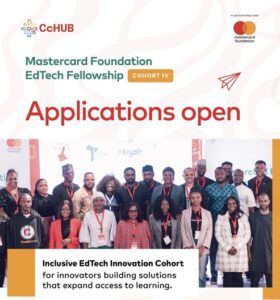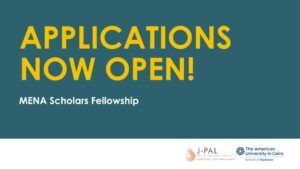Applications are now open for the Atlantic Fellows for Social and Economic Equity (AFSEE) programme for social-change leaders who are working to tackle inequality. Policymakers, researchers, activists, practitioners, artists, and movement-builders from around the world are invited to apply to the innovative, fully-funded, and inequalities-focused fellowship programme based at the International Inequalities Institute at the London School of Economics and Political Science.
Requirements
- Candidates who live in the Global South (although this factor will never be considered in isolation)
- Candidates who come from marginalised and/or historically underrepresented groups such as Black, Latinx/o/a/e, Indigenous, Asian, Arab, Middle Eastern, Pacific Islander, refugee, biracial, multiracial, female-identifying, the disability community, LGBTQIA+ etc.
- Candidates who do not otherwise have the resources to finance their participation in activities such as the AFSEE Fellowship and/or have not already had significant access to fellowships or scholarships.
ELIGIBILITY CRITERIA
Applicants to the Atlantic Fellows for Social and Economic Equity programme must be able to demonstrate their ability to meet the following eligibility criteria.
Residential Fellows
- Applicants must qualify for admission to the London School of Economics’ MSc in Inequalities and Social Science. These requirements include a 2:1 degree or equivalent in any discipline. A background in social science and/or work experience in the social policy field are advantageous but not essential. Please refer to the programme page for full details.
- Applicants must meet LSE’s standard English Language Requirement.
- Applicants must have at least 7 years of experience demonstrating courage, care, leadership and commitment in advancing equitable solutions to inequality.
Note: Applicants who have attained a PhD, who have completed an MSc within the past three years, or who are currently studying for a degree, will not normally be considered for the Residential track.
Non-Residential Fellows
- Applicants must meet LSE’s standard English Language Requirement.
- Applicants must have at least 7 years of experience demonstrating courage, care, leadership and commitment in advancing equitable solutions to inequality.
Note: For the Non-Residential track, we aim to be inclusive and to encourage applications from non-traditional applicants. We therefore welcome applications from both those applicants who hold an undergraduate degree (2:2 and above) and to those who do not hold an undergraduate degree.
Benefits
- The Residential track of the AFSEE Programme is fully-funded. AFSEE covers full tuition fees for the MSc Inequalities and Social Science course, travel to and from London at the beginning and end of the active fellowship year, and any visa and immigration-related costs. All Residential Fellows will also receive a £23,000 stipend to cover living costs while in London.
- The Non-Residential track of the Atlantic Fellows for Social and Economic Equity programme is fully-funded. AFSEE programme covers the cost of the Postgraduate Certificate; all expenses related to travel to and from modules; accommodation and related costs during modules; and any visa fees. All Non-Residential Fellows will also receive up to a £10,000 grant to support the execution of their fellowship project.
Method of Application
- All applicants must complete an online application through the LSE’s Graduate Application System during the application period.
- Please make sure you have allowed yourself enough time to complete the application, including providing all the required supporting documents. It can take time to request documents from educational institutions, and many will be closed over the winter break, so we would advise starting the process early. If your application is incomplete when the applications close, it unfortunately will not be considered. In addition to filling in an application form, you will also need to:
Request references
Nominate two referees and make sure that both references have been submitted by the reference deadline (5pm GMT, 17 January 2025).
Upload documents
Upload documents, including your transcripts or a document stating that you do not hold an undergraduate degree; your statement of academic purpose; and your CV.
Meet language requirement
Take necessary steps to prove that you meet the minimum English-language requirements. However, please note that applicants are not required to sit an English-language test before they submit their application.
For More Information,
Visit the Official Webpage
Application Deadline: 10 January 2025.

